From classics to modern masterpieces, these great poetry books—recommended by poets themselves—belong on your bookshelf
Our editors and experts handpick every product we feature. We may earn a commission from your purchases.Learn more.


From classics to modern masterpieces, these great poetry books—recommended by poets themselves—belong on your bookshelf
Our editors and experts handpick every product we feature. We may earn a commission from your purchases.Learn more.
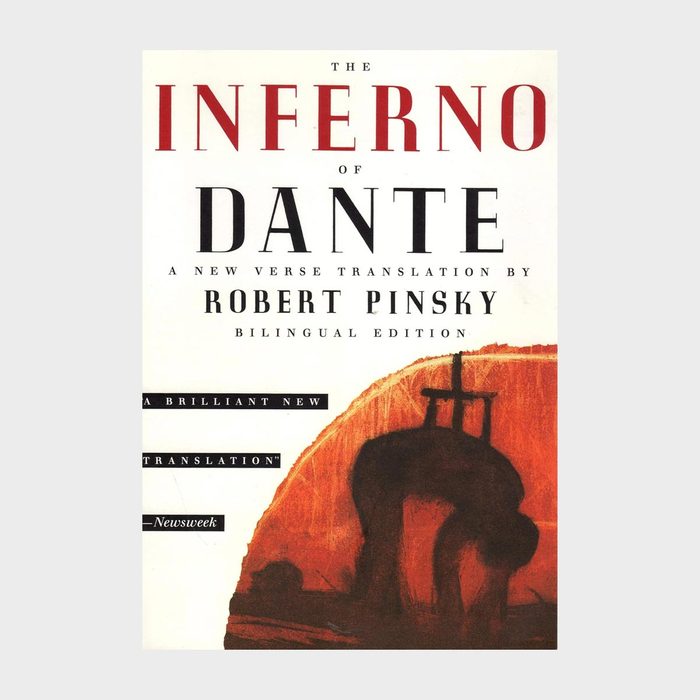
Recommended by: Grace Schulman
Originally published in 1321, Dante Alighieri’s The Divine Comedy is largely considered one of the greatest works of Western literature. The three epic poems—Inferno, Purgatorio and Paradiso—are an allegory for the Christian soul’s journey, with Inferno following Dante’s fictionalized quest through the nine circles of hell. Not only was the original text written in medieval Italian, but the structure is also a complex rhyme that has challenged English translators for centuries.
Poet Robert Pinsky’s translation of The Inferno of Dante is a more accessible version for modern readers that still captures Dante’s gorgeous lyricism and compelling storytelling. It’s no wonder it won the 1995 Los Angeles Times Book Prize and the Harold Morton Landon Translation Award of the Academy of American Poets. If you love classic books and poems, you’re in for a treat!
Why she loves it: “I gasp every time I read of Dante’s sinners in hell like Paolo and Francesca, doomed to whirl in air, bound together, for falling in adulterous love over a book. Imagine!”
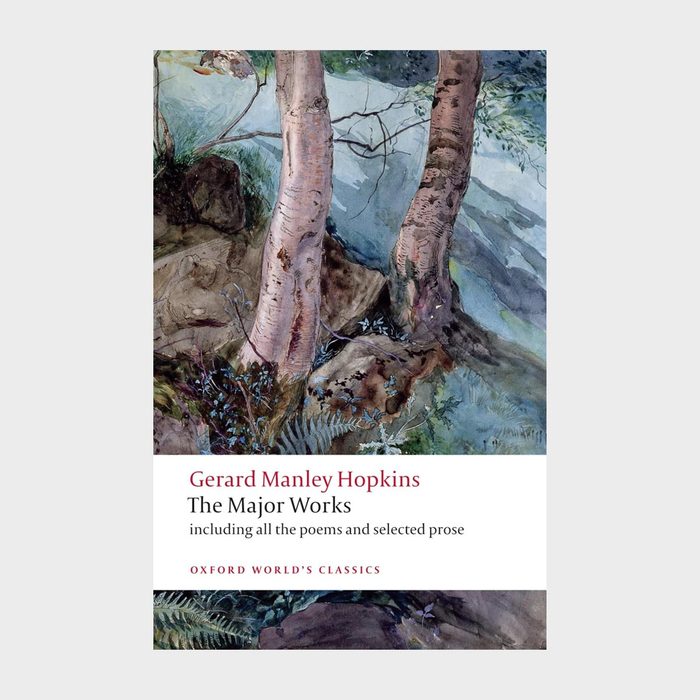
Recommended by: Grace Schulman
As a 19th-century priest, Gerard Manley Hopkins wrote devotional poetry, desiring fervently to be close to God while also contemplating the complexities of piety. But it’s his rich imagery and innovative rhyme and diction that continue to enrapture readers, regardless of religious background. Oxford University Press’s 2002 edition of Gerard Manley Hopkins: The Major Works includes all of Manley Hopkins’s poems, as well as excerpts from his journals, letters and essays to give additional context about his life and theological musings.
Why she loves it: “It seems my favorite books are of erotic love and prayer, both passions that merge in this Jesuit priest’s poems, not in word meanings but in rhythms: ‘Brute beauty and valour and act, oh, air, pride, plume, here / Buckle!’ Pure passion. Pure eros. Pure, he says, prayer.”
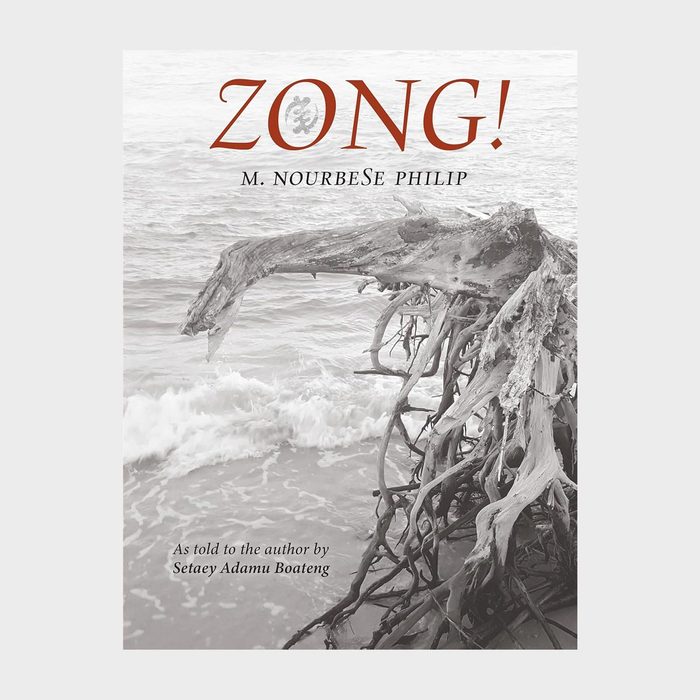
Recommended by: Chandanie Somwaru
On Nov. 29, 1781, approximately 150 enslaved Africans were murdered on the British slave ship Zong for an insurance payout. Even more horrifying, the 1783 insurance case Gregson v. Gilbert deemed this act legal. M. NourbeSe Philip details this massacre in her 2008 book-length poem, Zong!, using only words from the legal text itself. For history buffs or readers looking for books about racism, this is a haunting but critical reading.
Why she loves it: “Zong! is a masterpiece of documentary poetics in which Philip uses fragmentation of a public record to remember the enslaved African peoples who lost their lives in 1781. Her work asks us to connect the dots, to add to a dialogue that cannot give us the whole story, and to think about silence as something we should be aware of. Her language plays with the way we want to make meaning and find out the truth: ‘the / story / waits / can / not / be / told / the oba / sobs / again act / scene m lord / says the law / is never / wrong can / never / sin.'”
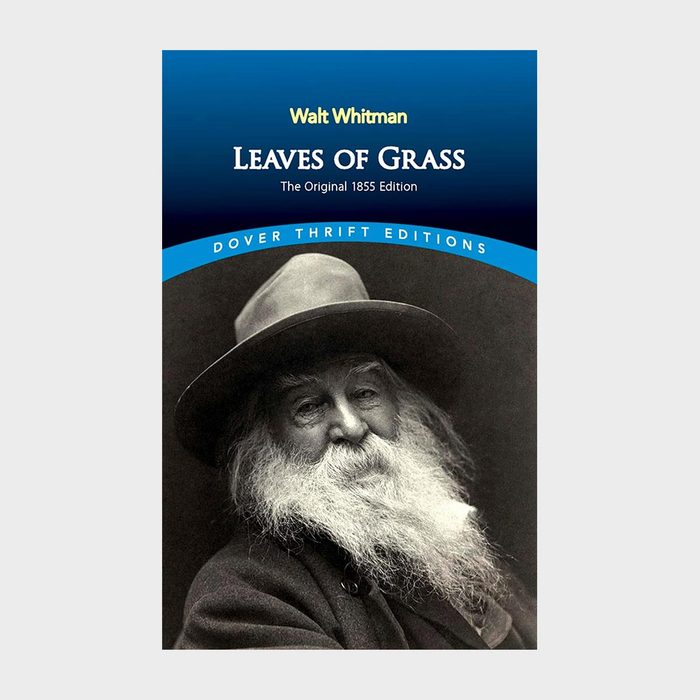
Recommended by: Grace Schulman
First published in 1855 by American poet Walt Whitman, Leaves of Grass was considered controversial at the time—and even became a banned book—but has since found its place among the greatest books of poetry ever written. While many of his peers were adhering to strict rhyme schemes and strict religious themes, Whitman wrote in an innovative free-verse style that celebrated spirituality through Nature (yes, with a capital N) and the human body in sensual and sometimes homoerotic overtones.
This collection of 12 poems includes famous works like “Song of Myself” and “I Sing the Body Electric,” which may stump modern poetry newbies at first. But read it out loud to fully immerse yourself and understand Whitman’s intent.
Why she loves it: “He sees, observes, views and peers, taking me on a journey to nowhere. I follow where he leads. I believe it when he writes, ‘I stop somewhere waiting for you.'”
Looking for your next great book? Read four of today’s most compelling novels in the time it takes to read one with Fiction Favorites. And be sure to join the community!
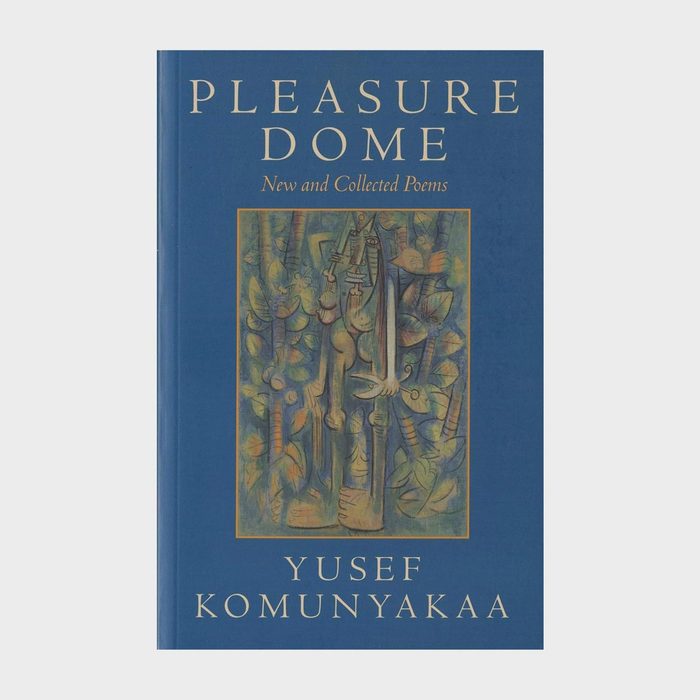
Recommended by: Grace Schulman
Yusef Komunyakaa’s 2001 collection Pleasure Dome includes his prolific work as a poet—and winner of the Pulitzer Prize and Ruth Lilly Poetry Prize—over a period of 25 years. Exploring Black American life and his experiences as a correspondent during the Vietnam War, Komunyakaa’s poetry is percussive and powerful for jazz aficionados, modern poetry lovers and those looking for celebrated books by Black authors.
Why she loves it: “With his jazz rhythms, his moving integrity, his compassion for the human condition, he towers over current American poets. I go to this book often for hard truth bound with deep feeling.”
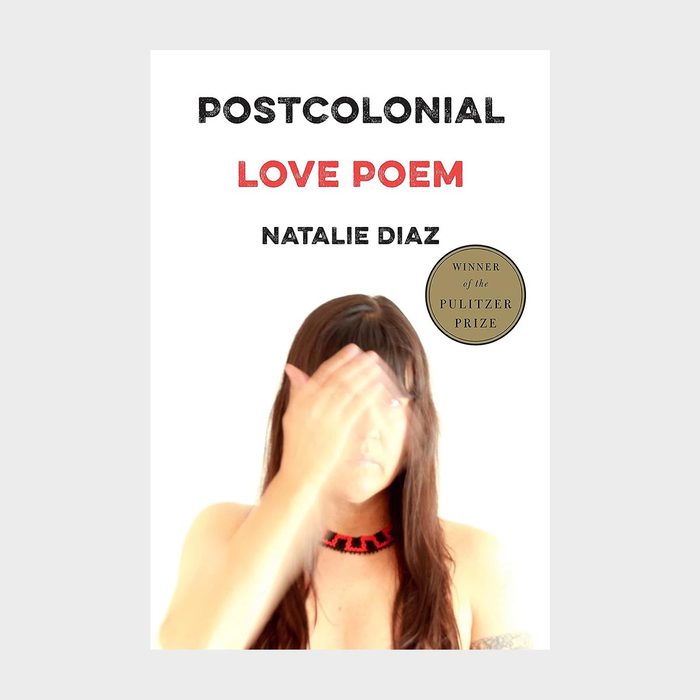
Recommended by: Me
Winner of the 2021 Pulitzer Prize for Poetry and a finalist for the 2020 National Book Award for Poetry, Postcolonial Love Poem is both a battle cry against Native American erasure and a love poem for the author’s land and her people. Natalie Diaz explores desire and pain with intentional intersectionality, laying bare her vulnerability with tenderness. These poems are perfect for both those looking to dip their toes into poetry and those who seek to decolonize their bookshelves.
Why I love it: In a world where Indigenous voices are rapidly disappearing, Diaz manages to enrage and inspire hope for the future. She says, “I am doing my best to not become a museum / of myself. I am doing my best to breathe in and out. / I am begging: Let me be lonely but not invisible.”
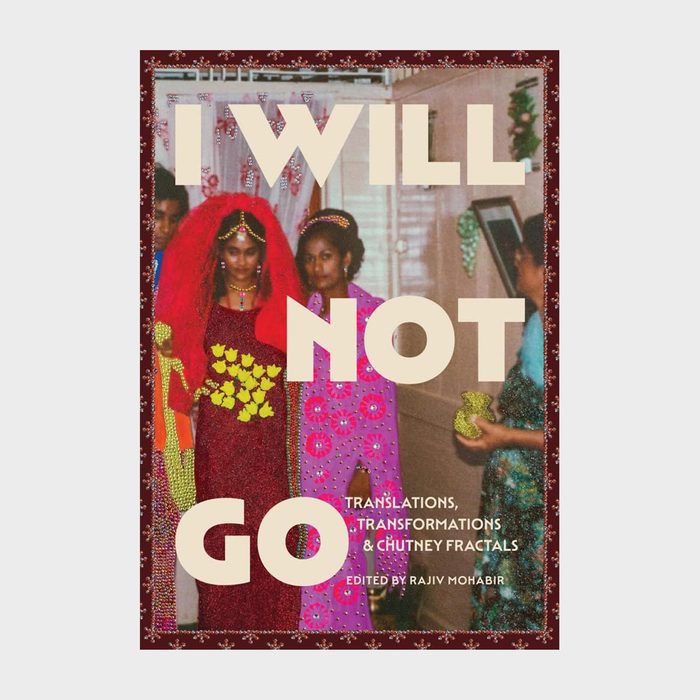
Recommended by: Chandanie Somwaru
The Indo-Caribbean language and culture is wholly unique, with Chutney music being born from North Indian tunes and African beats. Published in 2024, the anthology I Will Not Go: Translations, Transformations and Chutney Fractals joins the ranks of great poetry books that carry on the tradition of Caribbean Hindustani songs. With interpretations from 17 diasporic writers, such as Anita Baksh, Divya Persaud, Eddie Bruce-Jones, Miranda Rachel Deebrah, Will Depoo, Anu Lakhan, Simone Devi Jhingoor, Natasha Ramoutar and more, the voices collected here are raw, sometimes playful and always innovative.
Why she loves it: “I Will Not Go is an anthology that focuses on song, translation and remembering for a multitude of writers. These writers set out to experiment with using many different tongues to rediscover culture through song, which holds the voices and traditions that have been passed down but silenced. These songs, newly transformed, show the hope to be heard in many languages, to be seen, to understand the prayers, the communion, the survival of the Indo-Caribbean community: ‘we / can see / the ties / that / bind soul / to soul here.'”
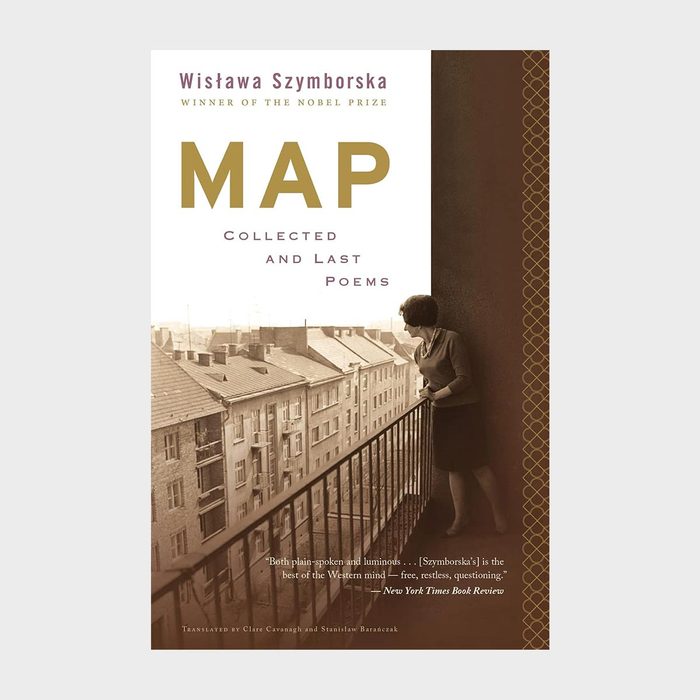
Recommended by: Grace Schulman
Winner of the 1996 Nobel Prize in Literature, Polish poet Wislawa Szymborska was acclaimed for her effervescent wit and philosophical wisdom, even when writing about horrors that she lived through, like World War II, Stalinism and the Cold War. Map is a 2015 posthumous collection of her 250 poems, edited by her longtime translator, Clare Cavanagh. The title poem opens with these iconic lines: “I like maps, because they lie. / Because they give no access to the vicious truth. / Because great-heartedly, good-naturedly / they spread before me a world / not of this world.”
Why she loves it: “These poems are radiant excursions into everyday events against a backdrop of war and suffering. What compels me is how she deepens the world’s tragedy with bleak humor, sometimes outrageous, always on the mark.”
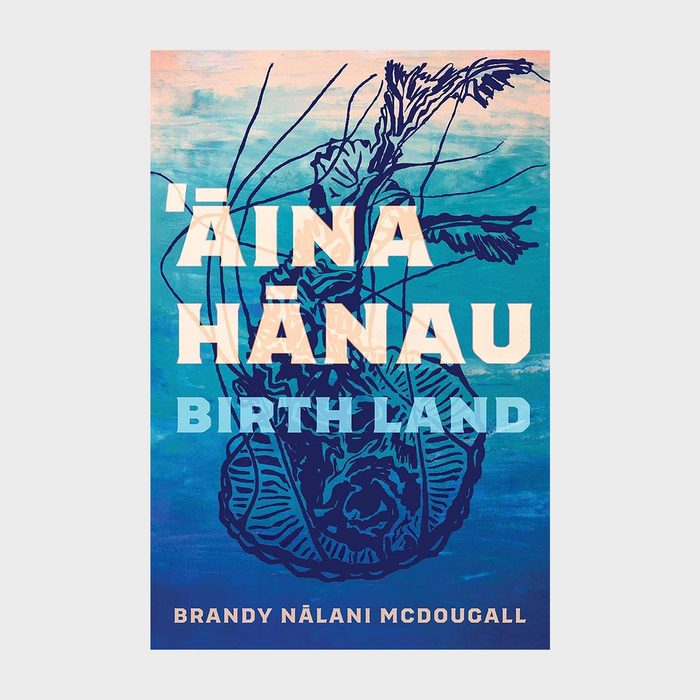
Recommended by: Chandanie Somwaru
The beautiful islands of Hawaii have a dark history that continues to oppress the Native Hawaiian community and wreak environmental havoc on their ancestral land to this day. Published in 2023, Brandy Nālani McDougall’s ‘Āina Hānau / Birth Land is a mesmerizing collection that explores these injustices while also expressing an urgent hope for future generations. It’s a necessary read for those who would like to learn more about Hawaiian culture and people.
Why she loves it: “McDougall’s collection weaves Ōlelo Hawai’i and English in an exposé, highlighting the atrocities that tourism, militarism and American imperialism have done to Hawai’i. However, in this work, as well, is the celebration and reclamation of the richness of Hawaiian culture through mele, mo’olelo, land, language, traditions and history. This work makes you understand what it means to return to yourself and your home, and to keep building this tradition to pass down to the next generation: ‘May you know the immensity too– / that even when you think you are / alone, that you feel the ocean / in your sweat and tears.'”
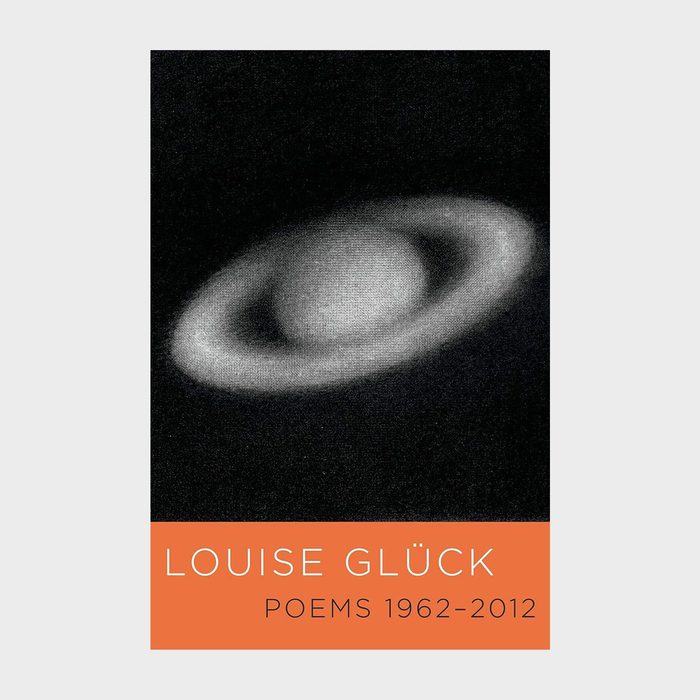
Recommended by: Me
Winner of the 1993 Pulitzer Prize for poetry and 2020 Nobel Prize in Literature, Louise Glück is a celebrated autobiographical poet, weaving personal experiences with Greek mythology and nature imagery. Poems 1962–2012, published in 2012, collects Glück’s expansive work and touches on many different themes, from childhood trauma to love and aging. For fans of books written by female authors, Glück is the perfect poet to read.
Why I love it: Glück’s poems may seem simple on the surface, but her words and meanings often echo in my brain for days. She examines what it means to be human with an exquisite eye—for example, her struggle with anorexia: “It begins quietly / in certain female children: / the fear of death, taking as its form / dedication to hunger, / because a woman’s body / is a grave; it will accept anything.”
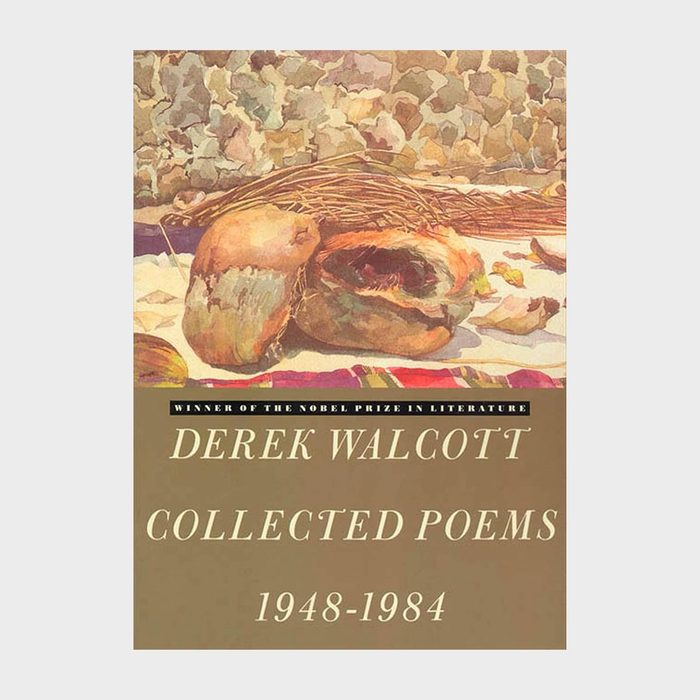
Recommended by: Grace Schulman
St. Lucian poet and playwright Derek Walcott’s Collected Poems won the 1986 Los Angeles Times Book Prize for Poetry and contains his work from 1948 to 1984. Walcott’s poetry is lush, spiritual and epic but unflinching in its depictions of harsh life in the postcolonial West Indies. Among his many awards, Walcott received the 1992 Nobel Laureate in Literature.
Why she loves it: “His Caribbean is of the place and of the mind. I’m deeply moved by his fiercely divided life, caught between love of the English language and identification with native culture. His divisions become my divisions.”
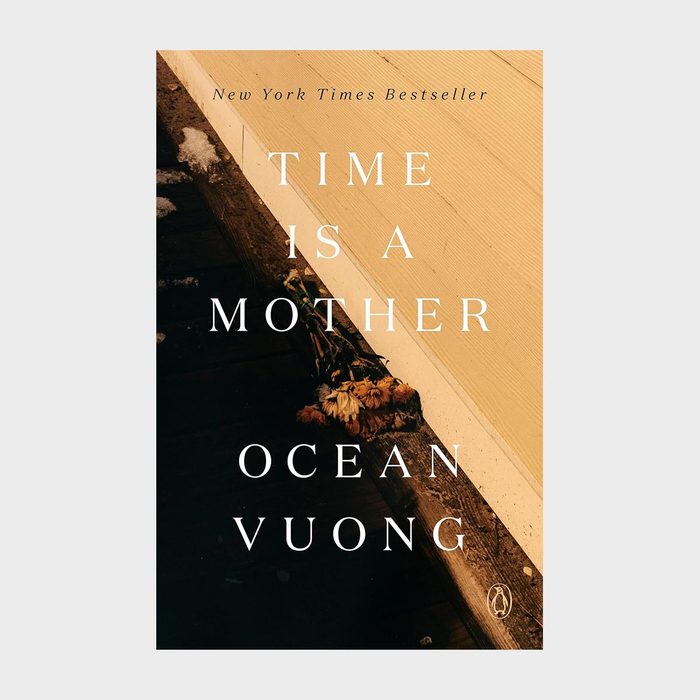
Recommended by: Me
It’s rare for great poetry books to be New York Times bestsellers these days, and yet Ocean Vuong followed his acclaimed novel On Earth We’re Briefly Gorgeous with another hit. Time Is a Mother was published in 2022 after the death of his mother, and while this collection deals with that grief, it also explores themes like queer identity and being a product of the Vietnam War. For young readers grappling with identity issues or readers experiencing loss, this is a must-read.
Why I love it: As a daughter of immigrants, I often find myself gravitating toward Asian American books that deal with the complex relationships we have with our parents, especially the intergenerational trauma we inevitably inherit. As always, Vuong captures these themes in Time Is a Mother in a fresh, beautiful and haunting voice.
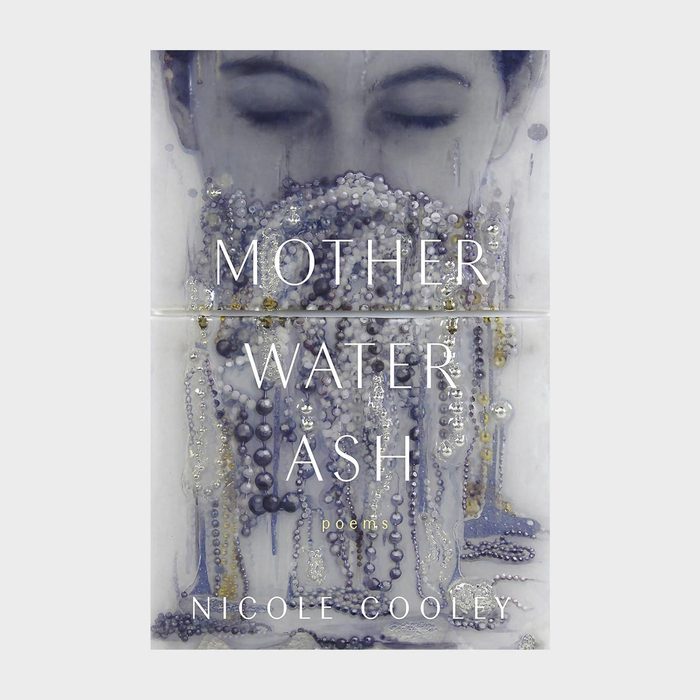
Recommended by: Chandanie Somwaru
Books on grief can offer healing and catharsis by confronting hard truths. Like Time Is a Mother, Nicole Cooley’s 2024 collection Mother Water Ash was written in the aftermath of her mother’s death. With scintillating precision, Cooley writes about the rage and loss she feels, framed against the impact of environmental crises in the city where she grew up.
Why she loves it: “Mother Water Ash is a heart-wrenching and beautiful ode to the ‘mother’ figure and New Orleans. Through Cooley’s work, we see how grief manifests and is carried: ‘Grief is a river or it’s an animal / sharp toothed and urgent … Grief is a metronome clicking on my mother’s piano.’ This work helps us understand the heaviness of absence as well as the depth of love one can hold.”
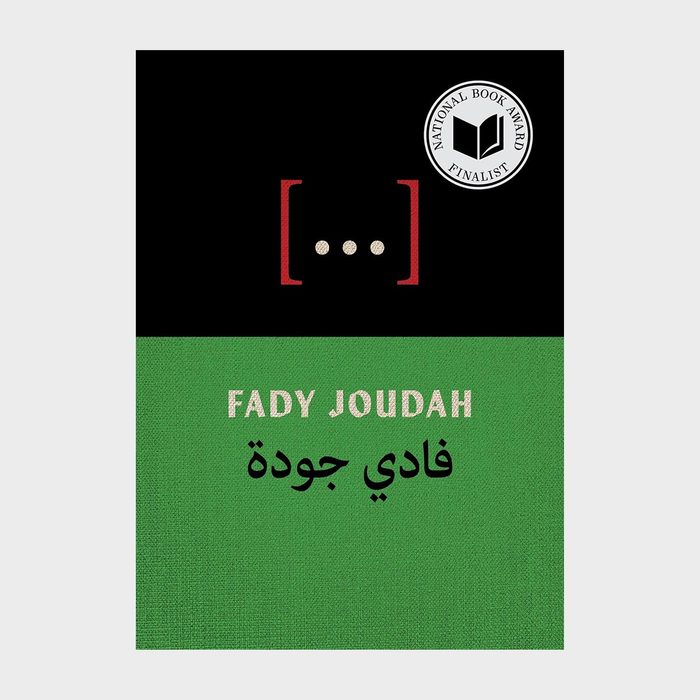
Recommended by: Chandanie Somwaru
You may have read Fady Joudah’s viral poem “Mimesis” on social media in the past few years—it touches on displacement and erasure with haunting poignancy. Joudah’s 2024 collection […] carries that same weight, shedding light on the past and present of the Palestinian people using breathtaking, heartbreaking imagery. A finalist for the 2024 National Book Award for Poetry and the winner of the 2024 Jackson Poetry Prize, this is one of the best poetry books for readers who are looking to channel activism through art.
Why she loves it: “‘How is the view from my window? / How does my salt taste? / Shall I condemn myself a little / for you to forgive yourself / in my body? Oh how you love / my body, my house.’ Joudah’s work asks us to bear witness to war, the violence and terror of imperialism.”
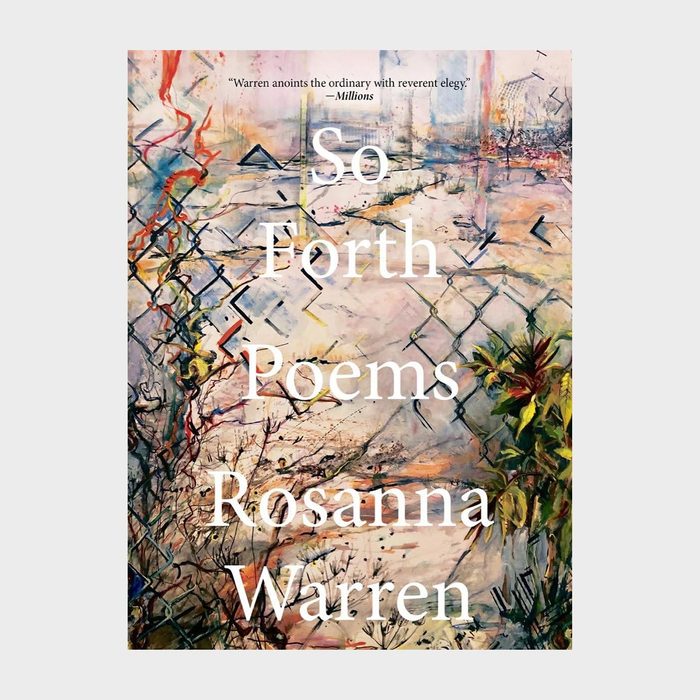
Recommended by: Grace Schulman
Rosanna Warren’s training as a painter shines through in her 2020 collection So Forth, which subtly weaves social injustices and philosophy with deeply personal thoughts and memories. Each word is an ingenious brushstroke layered to create a vivid portrait of the physical world around us, which those who are new to poetry will appreciate. However, like all great poetry books, seasoned readers will also love Warren’s invitation to ponder the deeper meaning of it all.
Why she loves it: “This is new. The language is new, a bold merging of elegance with this-minute speech. Warren has a way of seeing the world in its present moment infused by the past, her passions controlled by a luminous intelligence.”
Get Reader’s Digest’s Read Up newsletter for more books, humor, travel, tech and fun facts all week long.
About the experts
|
At Reader’s Digest, we’ve been sharing our favorite books for over 100 years. We’ve worked with bestselling authors including Susan Orlean, Janet Evanovich and Alex Haley, whose Pulitzer Prize–winning Roots grew out of a project funded by and originally published in the magazine. Through Fiction Favorites (formerly Select Editions and Condensed Books), Reader’s Digest has been publishing anthologies of abridged novels for decades. We’ve worked with some of the biggest names in fiction, including James Patterson, Ruth Ware, Kristin Hannah and more. The Reader’s Digest Book Club, helmed by Books Editor Tracey Neithercott, introduces readers to even more of today’s best fiction by upcoming, bestselling and award-winning authors. For this piece on great poetry books, Sarah Jinee Park tapped her experience as a poet and journalist who writes about poetry and books for Reader’s Digest to ensure that all information is accurate and offers the best possible advice to readers. We verify all facts and data, back them with credible sourcing and revisit them over time to ensure they remain accurate and up to date. Read more about our team, our contributors and our editorial policies.
Sources: